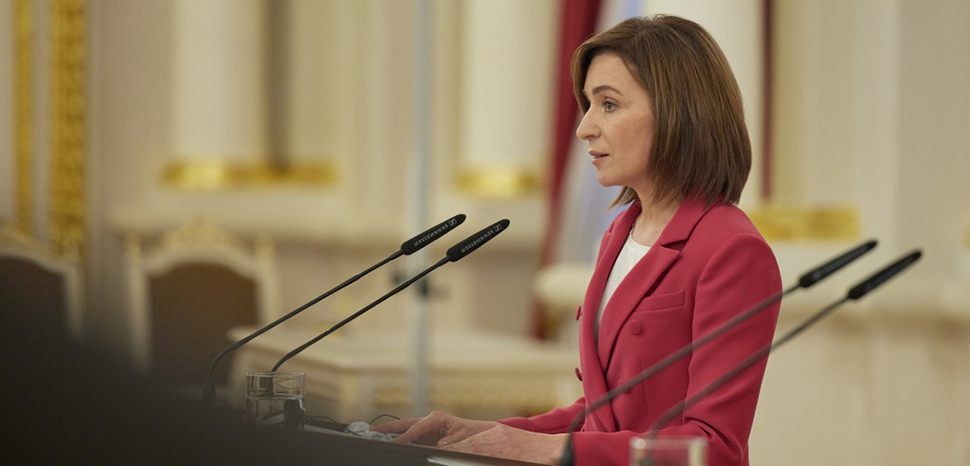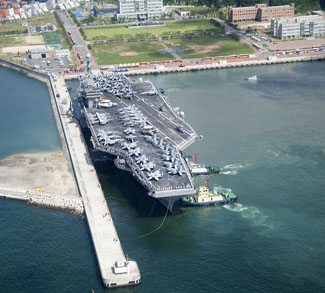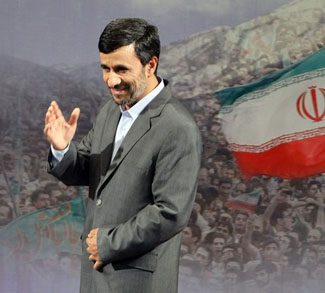US President Joe Biden has invited the leaders of 110 countries across the globe to participate in the two-day Summit for Democracy. Much has been written about the governments that were not invited to this virtual summit, which will take place from 9-10 December, such as the People’s Republic of China, the Russian Federation, and the Republic of Turkey, however there are also several participants worth noting.
For example, regarding the nations that constitute the former Soviet Union: Armenia, the three Baltic nations, Georgia, Moldova, and Ukraine have been invited. In this brief commentary, we will briefly analyze Chisinau-Washington relations and why this invitation is an important sign of confidence from the White House to the European country’s President Maia Sandu.
Maia Sandu in in charge
Moldova’s challenges and issues since achieving independence have been well-recorded. These include bad governance, corruption and a Russian-backed separatist region known as Transnistria. The author of this essay co-authored a book chapter, titled “Moldova’s Transnistria Question: Is the term ‘frozen conflict’ still applicable?” in Separatism and Regionalism in Modern Europe (Logos Verlag Berlin, 2020) which provides a summary of Moldovan history, its present challenges, and what its future looks like.
Rather than listing Moldova’s problems, this commentary will focus on evolution of the country’s foreign policy attitude since President Maia Sandu came to power in December 2020. Sandu, a former minister of education, was also a short-lived prime minister, serving from June to November 2019. As a parliamentary democracy, the prime minister is the head of government, rather than the president. In this case, the current PM is Natalia Gavrilita, a former minister of finance. Both Sandu and Gavrilita are members of the Action and Solidarity Party (Partidul Acțiune și Solidaritate: PAS) a center-right, liberal party.
Since coming to power, both as PM and president, Sandu has promoted a generally pro-Western foreign policy. Just between late September to November, she visited Austria, France, Romania, and also hosted the German and Slovenian presidents. Days after the Summit for Democracy, Sandu and Gavrilita will participate in the Eastern Partnership Summit along with the European Union on 15 December.
While President Sandu has not yet visited Russia, she has explained that she seeks a “pragmatic relationship” with Moscow. Case in point, in mid-November, Moldova’s Minister of Foreign Affairs Nicu Popescu visited Moscow and met with his Russian counterpart, Sergei Lavrov. Similarly, Moldovan Minister of Defense Anatolie Nosatîi met with the Russian ambassador to Moldova, Oleg Vasnețov, and the military attache, Andrei Lobov, to discuss military relations. Nevertheless, labeling Moldova’s relations with Russia as complex is an understatement. Moscow’s support for Transnistria is an obvious problem, but many Moldovans work in Russia and send remittances back home, and the two countries have strong cultural ties, with many Moldovans being Russian speakers, apart from speaking Romanian. Moreover, Russia is a critical supplier of gas to the country, a problematic issue for Chisinau.
Chisinau-Washington relations
Both as prime minister and now as president, Maia Sandu made it clear that she wanted to have a dynamic relationship with Washington. As PM, she visited Washington in August 2019 – the author of this commentary saw her give a speech at a DC think tank – to reassure US policymakers that her country would undergo a positive reform process. While her time as PM was brief, which prevented her from carrying out many of her projects, her current role as president, along with a friendly PM and a generally supportive citizenry, allows Sandu to carry out much needed reforms.
As for Chisinau-Washington relations, while they cannot be qualified as a “special relationship” à la London-Washington, Moldovan officials are certainly making an effort to demonstrate that this relationship is important to Chisinau. There are several recent meetings worth noting. Moldova’s Minister Popescu met with Wendy R. Sherman, US Deputy Secretary of State in October during the 76th session of the United Nations General Assembly, to promote a bilateral strategic dialogue. Also in October, the Deputy Secretary of State for Central and Eastern Europe, Robin Dunnigan, traveled to Chisinau, where she met with President Sandu. “We emphasized … that Moldova wants to deepen the Strategic Dialogue with the USA, one of our main development partners “, said President Sandu.
Another senior US official that traveled to Moldova recently was USAID Administrator Samantha Power, who visited the European nation on 16-18 November. “While in Moldova, Power will launch a new program to enhance the competitiveness of the country’s growing digital and communications technology sectors,” reported a USAID press release prior to the visit. Power met with both President Sandu and Prime Minister Gavrilita.
During the meeting, PM Gavrilita praised the “assistance and support for development that was provided to the Republic of Moldova in the last 29 years through USAID and other U.S. agencies,” an amount estimated at over USD 1 billion. The latest initiative between the two governments is a five-year project, called Future Technology Activity, aimed at growing “connectivity in the IT sector in our country. This activity is significant proof of a receptive approach of the U.S. assistance in Moldova,” the PM added.
There is also a defense aspect to keep in mind. Article 11 of Moldova’s constitution states that the country is “permanently neutral; therefore it cannot join alliances like NATO. Nevertheless, the Moldovan military enjoys strong defense ties with the US via the US National Guard’s State Partnership Program, via which Moldova teams up with the North Carolina National Guard. US Army General Christopher Cavoli, commanding general of United States Army Europe and Africa, visited Moldova in early September, an important occasion.
Finally, it is worth noting that the Moldovan military will contribute troops to a UN peacekeeping mission for the first time, namely the UN mission in Lebanon, UNIFIL. The first 20 troops will be deployed in August 2022 and it is unclear if additional troops will be deployed. The United States military has supported the modernization of the Moldovan military, including upgrading its training facilities in Bulboaca, hence the fact that Moldova is increasing its participation in international peace missions – it already participates in the NATO mission in Kosovo: KFOR – is a development that Washington surely welcomes and supports.
Moldova and the Summit for Democracy
There are cautious expectations of what will occur at the Summit for Democracy. The two-day event will reportedly revolve around three key issues: defending against authoritarianism; addressing and fighting corruption; and promoting respect for human rights. “Leaders will be encouraged to announce specific actions and commitments to meaningful internal reforms and international initiatives that advance the Summit’s goals,” explained a US State Department press release on the conference.
Apart from what can be realistically achieved at this summit, analysts around the world have commented on which governments have been invited to participate and which not, and what this list says about Washington’s foreign policy objectives and strategy during the Biden presidency. Numerous analyses have been published on the participation, or lack-thereof, of countries like Israel, Singapore; Taiwan, Turkey, as well has how the Hungarian government has blocked the European Union’s participation in the summit.
The Republic of Moldova’s upcoming participation has not received the international media attention that it deserves. This invitation would have been unthinkable during several previous governments, like those of Prime Minister Vladimir Filat (2009-2013), who subsequently spent time in prison, Prime Minister Pavel Filip (2016-2019), or the outspokenly pro-Moscow President Igor Dodon (2016-2020).
While it is unclear what the Moldovan government will say at the Summit, the very fact that Moldova has a seat at this (virtual) table, one of the few post-Soviet nations that will participate, is a significant occurrence that should not be overlooked. It will be important to monitor what President Sandu or PM Gavrilita say about Moldova’s achievements during the first year of PAS in power. During her electoral campaign and now as president, Sandu has pledged to fight corruption, reform Moldova’s judicial system, support meritocracy and increase transparency to prevent incidents like the embarrassing theft of USD1 billion in 2014-2015 from Moldovan banks, which hurt the Moldovan economy. These are precisely the same topics that the Summit will focus on.
While the European nation has various challenges, the Biden administration has demonstrated via recent high-profile meetings and via USAID and defense projects that it holds President Maia Sandu and PM Natalia Gavrilita in high regard. The Republic of Moldova’s participation at the Summit for Democracy is a sign that Washington supports Moldova’s current path.
The views expressed in this article are those of the authors alone and do not necessarily reflect those of Geopoliticalmonitor.com




